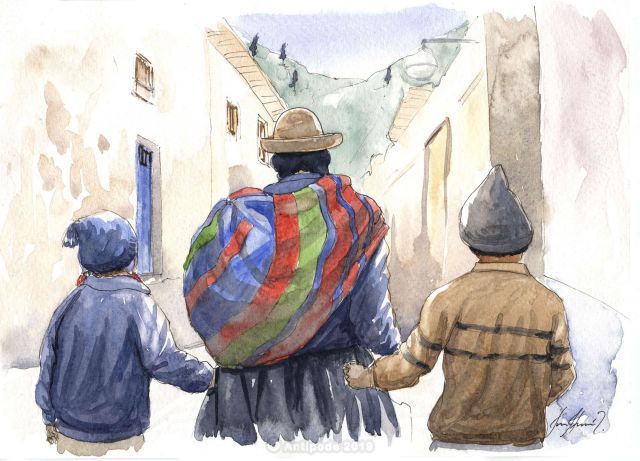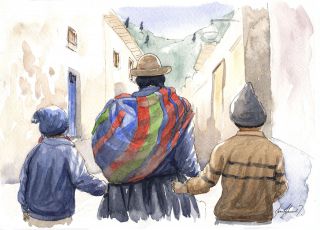

The Peruvian family
It’s one of the basic pillars of the Peruvian society. If the movie “Tanguy” made laugh a lot in France it’s because, decidedly, when at the age of 28 years old a son don’t leave the house yet, time is serious. This kind of humor would totally be misunderstood in Peru. Indeed, young peoples (even we they aren’t young anymore) stay in their parent’s house until late… very late. It isn’t unusual see persons of 35 or 40 years old living with their parents. First obvious reason; the financial restrictions. The labour market being quite difficult and informal, stay in the parent’s house is the solution of facility on the economic level. But beyond the material explanation, the reality is that the family weight is very, very important in the Peruvian culture.
The mother has almost a sacred status and make of her supreme duty the fact of serving her children (and often her husband too), at all levels; meals, washing of clothes, storing of possessions, etc… Why leaving if Mum does everything? And worst, feeling abandoned and denied as a mother if we leave? Sons, in particular, are very protected by their mothers who named them “hijito” (my son, my little, my little one) all their life. Fathers are also very protectives with their daughters and don’t accept easily candidates approaching. By the way, when they move up from their parent’s house (often when they married), it’s for living in the house beside, or in a dependence of the same house.
On the other side, familial solidarity is extremely important. Social relations are firstly made with family and then with other persons. Most of time, they grew up with cousins and cousins so Peruvian adults go outside, have dinner, gather and spend their time with family members. The grand-mother is often in charge of the children when parents have to work and the problem of a person is taken by the whole community.
It is also important to know that the conception of “family”, in Peru, is extensive. It’s not unusual to call “tio” or “tia” (uncle or aunt) parent’s close friends, even though they don’t have the same blood. As a consequence, the children of those persons are our “primos”, our cousins. Between this generality and the fact that families are mostly numerous, we can see that it’s not absolutely necessary to go outside the family to have a social life.



